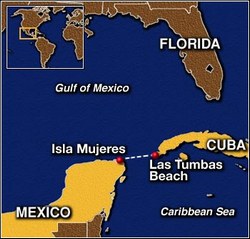Why is U.S.-Cuba Environmental Cooperation Critical?
- Submitted by: admin
- Environment
- Politics and Government
- 05 / 19 / 2010

Introduction: The sinking of the Deepwater Horizon drilling platform and the resulting discharge of millions of gallons of crude oil into the sea demonstrated graphically the challenge of environmental protection in the ocean waters shared by Cuba and the United States.
While the quest for deepwater drilling of oil and gas may slow as a result of the latest calamity, it is unlikely to stop. It came as little surprise, for example, that Repsol recently announced plans to move forward with exploratory oil drilling in Cuban territorial waters later this year.
As Cuba continues to develop its deepwater oil and natural gas reserves, the consequence to the United States of a similar mishap occurring in Cuban waters moves from the theoretical to the actual.
The sobering fact that a Cuban spill could foul hundreds of miles of American coastline and do profound harm to important marine habitats demands cooperative and proactive planning by Washington and Havana to minimize or avoid such a calamity.
Also important is the planning necessary to prevent and, if necessary, respond to incidents arising from this country’s oil industry that, through the action of currents and wind, threaten Cuban waters and shorelines.
While Washington is working to prevent future disasters in U.S. waters like the Deepwater Horizon, its current policies foreclose the ability to effectively respond to future oil disasters—whether that disaster is caused by companies at work in Cuban waters, or is the result of companies operating in U.S. waters.
Robert Muse, Attorney
Jorge R. Piñon, Former President, Amoco Oil Latin America; Visiting Research
Fellow, Cuban Research Institute at Florida International University
The Brookings Institution
http://www.brookings.edu/papers/2010/0518_oil_spill_cuba_pinon.aspx
Comments